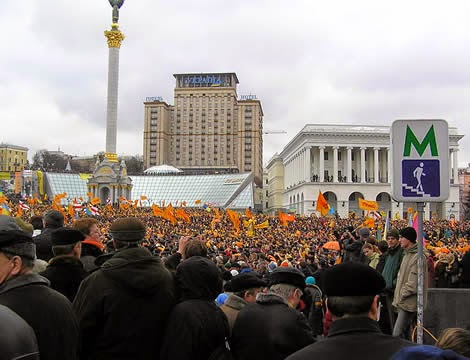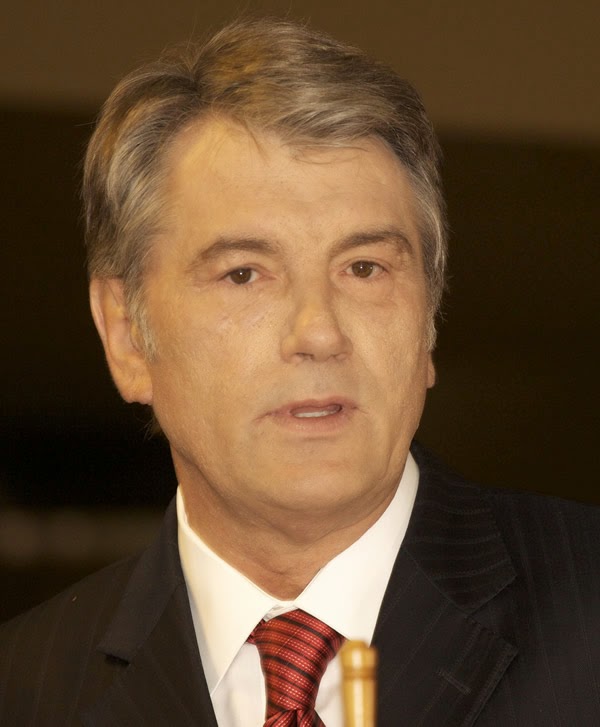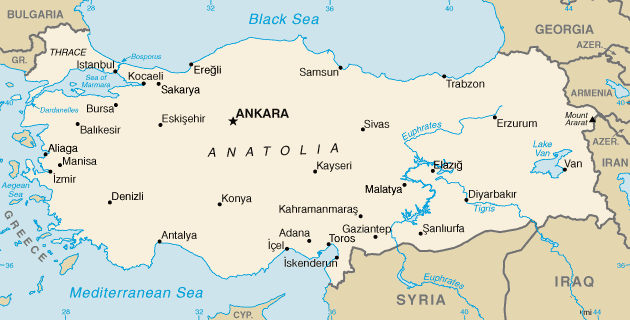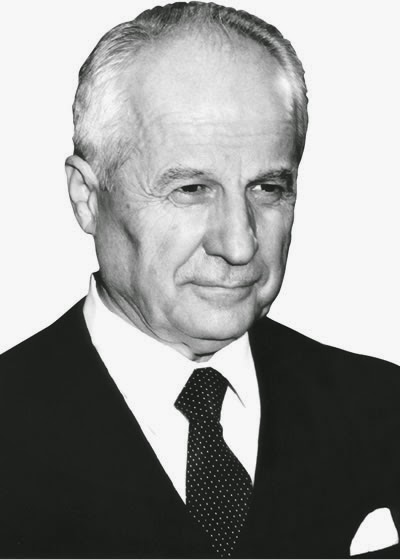 |
| Domestic Terrorism |
Since the mid-1990s domestic terrorism has been strongly associated with conspiracy theories. While acts of domestic terrorism withdraw maintain no necessary human relationship to conspiracy theories, the 2 withdraw maintain been linked inwards 2 major ways. First, conspiracy theories withdraw maintain been defined equally causes for, or leading to, domestic terrorism.
In this thinking, particular conspiracy beliefs Pb to acts of domestic terrorism. Second, a issue of conspiracy theories withdraw maintain arisen nigh acts of domestic terrorism. In other words, conspiracy theories render explanations for what is behind terrorism. Because of both of these aspects, at that topographic point is a rigid link betwixt domestic terrorism in addition to conspiracy theories.
Definitions The damage “terrorism” in addition to “terrorist” withdraw maintain been used to depict a broad make of tearing actions against societies in addition to governments. One of the major definitional difficulties associated with domestic terrorism, regardless of the connector to conspiracy theories, is coming upward with a clear in addition to rigorous pregnant that is consensual. There is no clear understanding on what domestic terrorism is.
For example, an armed in addition to tearing political arrangement tin lav live classified equally a terrorist grouping or equally liberty fighters, depending on the political perspective of the classifier. Also, at that topographic point are differing opinions whether the notion of domestic terrorism applies alone to actions carried out yesteryear ordinary individuals, or to actions carried out yesteryear the nation in addition to its agents.
In addition, at that topographic point are also at to the lowest degree 2 ways of defining “domestic.” It could hateful a tearing political human activeness that takes identify within the national borders of the United States, the most famous instance beingness the
11 September 2001 devastation of the World Trade Center.
Even though the alleged terrorist network responsible for the human activeness was international inwards nature, the fact that it happened on U.S. soil makes it an human activeness of domestic terrorism. The other definition of “domestic” requires that the perpetrators themselves live citizens of the acre nether attack.
The most famous instance hither is the 1995
Oklahoma City bombing of the Alfred P. Murrah Building, carried out yesteryear Timothy McVeigh, a U.S. citizen. With all of these differences it is no wonder that Richard E. Rubinstein, manager of the Center for Conflict Analysis in addition to Resolution, 1 time argued that a “definition of terrorism is hopeless ... terrorism is only violence that yous don’t like.”
The the States Department of Justice defines domestic terrorism equally “the unlawful utilization of strength or violence, committed yesteryear a group(s) of 2 or to a greater extent than individuals, against persons or holding to intimidate or coerce a government, the civilian population, or whatever segment thereof, inwards furtherance of political or social objectives.” This definition has been modified to accent the target of domestic terrorism, namely, civilians or noncombatants.
History While domestic terrorism may appear to live a twentieth-century (if non 1990s) phenomenon, history provides numerous acts that could tally the definition. The discussion “terror” tin lav at to the lowest degree live traced dorsum to the Reign of Terror conducted after the French Revolution inwards 1789, inwards which thousands were executed inwards club to forbid in addition to intimidate counterrevolutionary forces.
In U.S. history, the Boston Tea Party has been viewed equally a terrorist act, insofar equally it was a populace display of violence in addition to devastation to attain political in addition to social ends (antiBritish taxation). The American Revolution itself, inwards this view, depended on domestic terrorism against British colonizers to accomplish its goals.
H5N1 diverseness of rebellions arose inwards the outset 100 years of the the States that could live characterized equally terrorist. The Whiskey Rebellion taxation revolt, suppressed yesteryear federal troops inwards 1794, was a instance where military machine forces brutally responded to a tearing uprising. During the mid-1800s, religious fundamentalism became violent, peculiarly inwards the instance of the Church of Jesus Christ of Latter Day Saints (the Mormons).
Mormon insurrections were frequent inwards the Midwest in addition to inwards Utah, equally the beliefs in addition to practices of the church building (especially polygamy) clashed with dominant Christian beliefs in addition to local laws. Rebellious Mormons ambushed in addition to slaughtered over 100 California-bound migrants, which provoked a military machine answer yesteryear President James Buchanan. Mormon protestors employed guerrilla tactics against the federal troops.
During the Civil War, wartime tactics that easily autumn nether the category of “domestic terrorism” were employed yesteryear both sides. After the Civil War, the
Ku Klux Klan was formed inwards club to enact vigilante judge in addition to protect white southerners. Their tactics, including the burning of crosses, holding destruction, obstructing blacks from voting, beatings, in addition to lynchings were all designed to intimidate citizens (as good equally authorities officials) through terror.
In the belatedly nineteenth century in addition to early on twentieth century, labor struggles oft included elements of terror. From anarchist assassinations in addition to bombings to the company-hired strikebreaking Pinkertons, violence in addition to intimidation were tactics employed to farther political in addition to social ends.
During the belatedly 1960s in addition to early on 1970s, extreme protestation took on a novel character. The moving ridge of demonstrations in addition to riots sometimes turned violent, oft with provocation yesteryear constabulary forces (as, for example, during the 1968 Chicago Democratic Convention). At Kent State University inwards 1970, iv demonstrators were shot dead yesteryear National Guard troops.
The
Vietnam War menstruation also saw the rising of antiestablishment in addition to antiracist organizations that at times resorted to violence to farther their goals. Premier alongside them was the Weather Underground Organization (formerly the Weathermen), who were blamed for a serial of bombings (including the U.S. Capitol building), banking concern robberies, in addition to shootings during this era.
Their endeavour to instigate a socialist revolution through tearing provocation also included the jailbreak of Timothy Leary. Also active during this fourth dimension was the Symbionese Liberation Army, whose claim to fame was the kidnapping in addition to recruitment (or brainwashing, depending on your perspective) of Patty Hearst, granddaughter of paper magnate William Randolph Hearst.
Contemporary Domestic Terrorism The in conclusion xx years of the twentieth century saw an explosion inwards the issue of domestic terrorist groups, equally good equally the interests that motivate them. The U.S. Department of Justice classifies domestic terrorist groups into half dozen categories:
- violent Puerto Rican independence groups,
- anti-Castro Cubans,
- left wing,
- right wing,
- Jewish extremist, and
- special interest.
Among the in conclusion category’s members are antiabortion extremists, responsible for physical in addition to psychological intimidation of abortion providers in addition to patients, including the bombing of clinics in addition to the murders of abortion providers. Groups similar Operation Rescue, the Army of God, in addition to the American Coalition for Life Activists withdraw maintain been implicated in, or defendant of endorsing, a issue of these crimes.
Ecoterrorism, done inwards the shout out of environmental preservation, has also come upward nether recent scrutiny. Animal rights organizations that utilization harassment in addition to intimidation autumn nether this category (e.g., the Animal Liberation Front, which targets institutions that conduct unethical inquiry on animals, equally good equally those that turn a profit from this mistreatment). In addition, to a greater extent than full general environmental activists similar globe First! in addition to the globe Liberation Front withdraw maintain been dubbed domestic terrorists (the latter yesteryear the FBI inwards 2001).
In the 1990s, domestic terrorism achieved a prominence that it never had before. On 26 Feb 1993, the World Trade Center was rocked yesteryear a bomb inwards its subway garage. The explosion, caused yesteryear a homemade fertilizer bomb, killed half dozen people in addition to injured to a greater extent than than a thousand. On 4 March 1994, the jury found Mohammad Salameh, Ahmad M. Ajaj, Mahmud Abouhalima, in addition to Nidel Ayyad guilty on thirty-eight counts related to the bombing.
This lawsuit was an human activeness of domestic terrorism only according to the definition that emphasizes the identify of the lawsuit (on U.S. soil). The Arab identities in addition to unusual citizenship of the convicted perpetrators would brand this an human activeness of international terrorism nether other definitions.
Similarly, the eleven September 2001 terrorist onset on the World Trade Center in addition to the Pentagon, in addition to the downing of the plane over Pennsylvania, tin lav live seen inwards this light. The ongoing investigation into 9/11 is primarily focused on an international terrorist network, peculiarly Al-Qaeda in addition to Osama Bin Laden.
Conspiracy theories withdraw maintain abounded with these WTC attacks. One proposed motivation for the attacks is the alleged conspiratorial tendencies of the Arab mentality. Daniel Pipes’s run on Arab paranoia stresses how conspiracy theories are a role of daily life inwards the Middle East. The antisemitic in addition to anti-Western nature of these theories, according to some analysts, leads to extremist behavior.
H5N1 issue of other conspiracy theories quest to other sources. In the 1993 attack, the fact that an FBI informant had provided much of the damning testify against the defendant has led to the belief that the FBI agent was a provocateur; that is, someone who incited in addition to provided the materials for the bombing.
In the 2001 attack, numerous theories abounded that the terror was a outcome of
- an within project inwards the U.S. authorities designed to provoke a global state of war in addition to domestic martial law; or
- a Mossad (the Israeli cloak-and-dagger service) conspiracy to incite anti-Arab sentiment around earth in addition to evoke back upward for Israel’s policies.
Some theories combined the 2 narratives, contention that the purpose of the terrorist acts was to usher inwards a New World Order in addition to mayhap the concluding Armageddon.
Oklahoma City in addition to the Militias H5N1 issue of domestic terrorist acts occurred inwards the 1990s, including the 1996 Atlanta Olympic bombing in addition to the continued bombings of the Unabomber (which led to the arrest of Ted Kaczinski). Along with these came the increasing threat of chemic in addition to biological terrorism, which erupted inwards Nippon with the 1996 Sarin gas attacks yesteryear the Aum Shinrikyo cult, in addition to spilled over into the twenty-first century with the post-9/11 anthrax mailings.
But the lawsuit that dramatically propelled domestic terrorism in addition to conspiracy theories into the populace arena was the 1995 bombing of the Federal Building inwards Oklahoma City. In add-on to the scale of the devastation (169 dead, including 19 children), what was important nigh this lawsuit was the fact that it was done yesteryear U.S. citizens against other U.S. citizens.
Timothy J. McVeigh, a white Desert Storm veteran, was arrested in addition to later executed for the crime. During his trial, the prosecution stressed that a major motivation for the bombing was McVeigh’s conspiracy beliefs. Most significantly, McVeigh believed inwards a authorities conspiracy in addition to cover-up inwards the 1993 devastation of the Branch Davidian chemical compound inwards Waco, Texas.
The David Koresh–led religious arrangement had lost eighty-seven members inwards a fiery terminate to a monthslong siege, when federal law-enforcement agents stormed the residence with tanks in addition to CS gas. The appointment of the assault, 19 Apr 1993, was 2 years to the twenty-four hours earlier the Oklahoma City bombing.
Timothy McVeigh, an avid consumer of Waco conspiracy theories, became the exemplar for the unsafe results these beliefs could produce. His alleged brief sense with the militia motility propelled these armed groups into national prominence. While militias were never legally linked to the Oklahoma City bombing, much media scrutiny was placed on them, in addition to the Patriot network inwards general.
This loose collection of disgruntled citizens included taxation resisters, constitutionalists, white supremacists, Christian Identity members, rightto-bear-arms activists, in addition to full general antigovernment protestors. Conspiracy theories were oft associated with the Patriot movement, peculiarly theories that proposed that a
New World Order was imminent.
The picture of the conspiracy-obsessed militia fellow member anchored the link betwixt conspiracy beliefs in addition to tearing domestic terrorism. This association was spread yesteryear official authorities spokespeople, private watchdog organizations (such equally the Anti-Defamation League in addition to the Center on Hate in addition to Extremism), think-tank experts, scholars, in addition to fifty-fifty Hollywood films (like the 1999 celluloid Arlington Road).
At the same time, at that topographic point were enough of conspiracy theories nigh the Oklahoma City bombing itself. Steven Jones, McVeigh’s lawyer, published a book-length trouble organisation human relationship that claimed McVeigh was a pes soldier inwards a larger network of domestic in addition to international terrorists. David Hoffman, inwards his mass The Oklahoma City Bombing in addition to the Politics of Terror (1998), provides the most thorough instance of these theories.
Hoffman meticulously arranges the loose ends developed yesteryear other conspiracy theorists (including the two-blast theory, that at that topographic point was to a greater extent than than 1 explosion recorded); the lack of Bureau of Alcohol, Tobacco, in addition to Firearms (ATF) agents inwards the edifice during the bombing; the ATF informant Carol Howe’s testimony; the eyewitness accounts of McVeigh accomplices; in addition to numerous other details) into a broad trouble organisation human relationship of why the bombing occurred.
Along with Adam Parfrey, Hoffman makes the declaration that terrorism, to live effective, requires a claim of responsibility. No 1 claimed responsibleness for the bombing, in addition to many militia groups condemned the act.
Like many Patriot members, Hoffman charges that the Murrah Building bombing was planned in addition to executed yesteryear authorities insiders, inwards coordination with unusual agents, inwards club to plow pop back upward away from antigovernment groups in addition to towards authorities institutions. According to this theory McVeigh was a patsy, similar to Lee Harvey Oswald inwards the Kennedy assassination. The bombing was pseudoterrorism, a pretext for the passage of the Anti-Terrorism Act in addition to the widespread curtailing of civil liberties.
This theory nigh the Oklahoma City bombing draws on longer standing theories nigh terrorism inwards general—namely the “strategy of tension.” The “strategy of tension,” it is argued, is a counterinsurgency tactic that involves staging violence inwards club to blame it on one’s enemy. The 1933 Reichstag fire, allegedly started yesteryear Nazi forces, was blamed on Communist groups to plow pop High German back upward to the Nazi regime.
Operation Gladio, which took identify primarily inwards Italy inwards the 1970s, involved authorities infiltration in addition to provocation of leftist groups to commit acts of terror. Some conspiracy theories fence that many of the pretexts for the twentieth century’s wars (
the sinking of the Lusitania in addition to the USS Maine, the Gulf of Tonkin incident, in addition to
Pearl Harbor) were deliberately engineered to garner pop back upward for going to war.


























